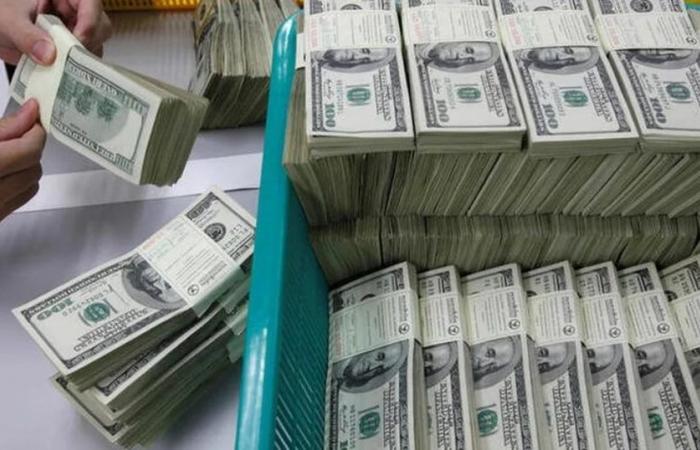In a wholesale session with little business that totaled USD 211.6 million in the cash segment, about USD 90.8 million or 30% less than Tuesday, the Central Bank had to sell USD 76 million for its exchange intervention. Although smaller than in previous months, in the June balance the entity maintains a purchasing result of USD 39 million, in the eighth consecutive month with a favorable balance.
Meanwhile, the Bookings international entities of the entity increased by USD 104 million, 29.885 million of dollars. From the Central Bank they specified Infobae that this amount “impacts the reserves acquired in the previous round and the impact of these operations on the accounting of those assets must be taken into account.”
The Central Bank accumulates net purchases in the exchange market for USD 17,325 million since December 11 of last year, when Javier Milei’s government took office. At the same time, the stock of international reserves improved by USD 8,676 million or 40.9%, from USD 21,209 million on December 7, 2023.
A report of the Economic Studies Management of Banco Provincia emphasized a salient fact so far in June: the slowdown in the pace of currency purchases by the monetary authority in the market: “Considering that the output of the coarse harvest accelerates as the second quarter progresses, this dynamic does not was expected ex ante. In fact, the slowdown – from May to June – was explained less by the liquidation of the agricultural sector, which fell from USD 130 million to USD 110 million between both periods, than by the operations of the rest of the economy: its contribution of USD 25 million daily in the first three weeks of last month turned into purchases of USD 40 million in the last two.”
Regarding the Central’s cash purchases, Banco Provincia analysts considered that “not only the net amount is relevant, but also its composition. At the same time that the agricultural sector liquidated USD 125 million per day, the rest of the economy bought USD 125 million per day, with a negative balance in all months, so that the position is not sporadic nor does it respond to a few days of “There is a lot of demand, but it is more like something trendy.”
“On the side of foreign currency outflow, we find a lower level of payment for imports and services compared to the previous year, and a current account in surplus much greater than that presented in 2023 – April 2023: USD 1,540 million, versus April 2024: USD 2,396 million. In the first months of the year there was a large inflow of dollars from export collections, greatly exceeding import payments. In April, payments began to run at 100% of imports. Thus, we observe the real purchasing capacity (of the BCRA), knowing that a good part of these payments were postponed at the beginning of the year because there were no dollars and they were delayed until the harvest,” indicated a report by Wise Capital.
“Although reserves have been rebuilt during the Milei government, a large part of this amount is due to the fact that the payment of imports on the total imported is at low values. Only as of April was it decided that the Central Authority would allow MSMEs to pay for official imports as of April 15, within 30 calendar days,” they added from Wise Capital.
Likewise, a report from BBVA Research He specified that “external accounts will improve in 2024, due to the drop in imports due to the recession, the recovery of agricultural exports in a year without drought and the positive balance of the energy sector due to lower purchases of imported gas and increased of oil exports. “The surplus balance of the energy sector is expected to approach USD 4 billion – while last year it was neutral.”
However, BBVA warned that “among the risks present for the current economic dynamics, one of the main ones would be a decrease in social support that makes fiscal consolidation – the pillar of macroeconomic policy – difficult, which could hinder disinflation and exchange stability.”






